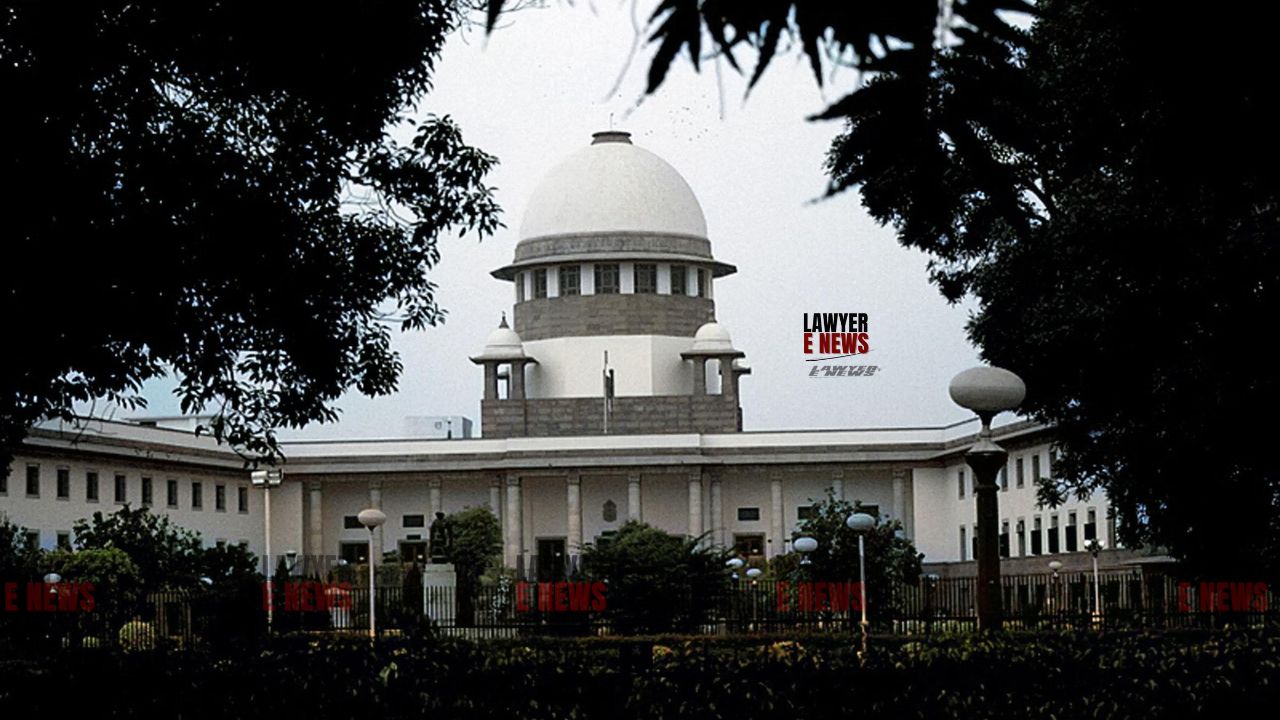-
by Admin
15 February 2026 5:35 AM



In a landmark judgment Supreme Court addressed the issue of over-implication of relatives in matrimonial disputes. The Court quashed the FIR against the petitioner (Accused No. 5), who was implicated along with her husband (Accused No. 6) under Sections 406, 498-A, 420, and 120-B of the Indian Penal Code (IPC). While the Punjab and Haryana High Court had quashed the proceedings against Accused No. 6, it declined to extend the same relief to Accused No. 5. The Supreme Court reversed this, stating that continuing proceedings against the petitioner would amount to an "abuse of process of the court."
The dispute originated from a marriage between Amit Sharma (Accused No. 1) and Vandana Sharma, the daughter of the complainant. The marriage, solemnized on February 23, 2019, deteriorated after the husband moved to Canada shortly thereafter. Vandana joined him later in December 2019. In September 2020, Amit initiated divorce proceedings in Canada, which triggered the filing of an FIR on December 3, 2020, by Vandana’s father against multiple family members, including Accused Nos. 5 and 6.
The allegations broadly included demands for dowry and harassment. Accused No. 5, the wife of Accused No. 6 and cousin of the husband, was alleged to have facilitated a monetary demand of ₹15 lakhs for obtaining visas and tickets for Vandana’s travel to Canada.
The Court relied extensively on prior judgments, particularly Preeti Gupta v. State of Jharkhand and Geeta Mehrotra v. State of U.P., to underscore the prevalent misuse of Section 498-A of the IPC by implicating distant relatives without substantial evidence. The Court observed:
“It is a matter of common knowledge that in matrimonial disputes, exaggerated versions of incidents are reflected in a large number of complaints. The criminal trials lead to immense sufferings for all concerned. Even ultimate acquittal in the trial may not be able to wipe out the deep scars of suffering of ignominy.
The judgment further emphasized that courts must scrutinize allegations against relatives living in different cities or rarely visiting the matrimonial home:
“The allegations of harassment by husband’s close relatives who had been living in different cities and never visited or rarely visited the place where the complainant resided would have an entirely different complexion.”
The Court underscored the duty of courts to identify cases of over-implication and to quash proceedings where allegations are vague, exaggerated, or prima facie improbable.
The Supreme Court affirmed the High Court's decision to quash the FIR against Accused No. 6. The complainant had admitted before the High Court that no specific allegations were made against Accused No. 6 under Sections 406 and 498-A IPC. The remaining accusations under Sections 417 and 420 IPC were dismissed as they failed to satisfy the necessary legal ingredients of deception and fraudulent inducement.
The Supreme Court found the allegations against Accused No. 5 to be general and devoid of any specific evidence. The Court noted:
“A bare perusal of the FIR would reveal that such allegations against Accused Nos. 5 and 6 are general and omnibus in nature and that apart they are nothing but exaggerated versions invariably suggesting over-implication.”
The Court criticized the High Court for overlooking the lack of distinct accusations against Accused No. 5 despite quashing the FIR against her husband, Accused No. 6. It held that continuing proceedings against Accused No. 5 would serve no purpose and reiterated the principle established in State of Haryana v. Bhajan Lal:
“The inherent powers under Section 482 CrPC must be exercised to prevent abuse of the process of any court or to secure the ends of justice.”
The Supreme Court allowed the appeal by Payal Sharma (Accused No. 5) and quashed the FIR and all subsequent proceedings against her. The Court also dismissed the appeal by the complainant seeking to reinstate proceedings against Accused No. 6.
This judgment reinforces the judiciary's caution against the misuse of legal provisions in matrimonial disputes and emphasizes the need for courts to protect individuals from unwarranted harassment arising from over-implication in criminal cases.
Date of Decision: November 26, 2024.
